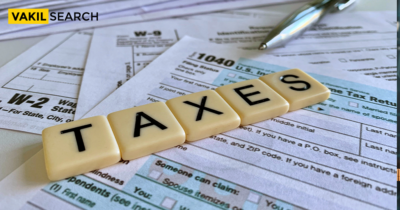Did you know that you can use the online application portal at http://www.chennaicorporation.gov.in/ to register and pay for professional tax? Let’s learn about this in this short read.
Introduction
Professional tax is a state-level tax applicable to income earned from a profession, trade, calling, or job. This tax is calculated based on income slabs and is levied on individuals, whether self-employed or employed by a company. The maximum limit for professional tax in India currently stands at ₹2500.
In this overview, we will delve into the states where professional tax is applicable, the concept of composition schemes, and various exemptions provided under this tax.
States Subject to Professional Tax
Professional tax is not uniform across all Indian states. As of now, the following states and union territories enforce professional tax:
- Andhra Pradesh
- Assam
- Bihar
- Chhattisgarh
- Gujarat
- Jharkhand
- Karnataka
- Kerala
- Maharashtra
- Madhya Pradesh
- Manipur
- Meghalaya
- Mizoram
- Nagaland
- Odisha
- Punjab
- Puducherry
- Sikkim
- Tamil Nadu
- Telangana
- Tripura
- West Bengal
Composition Scheme: A Unique Offering
In some states, there exists a unique concept known as the composition scheme. For instance, Maharashtra has introduced a composition plan allowing individuals to settle their professional tax liability. Under this scheme, one can pay a lump sum amount of ₹10,000 in advance, and their tax debt for the subsequent five years will be waived.
Exemptions from Professional Tax
Each state in India has its own set of rules and exemptions concerning professional tax. Karnataka, for instance, exempts specific individuals from paying professional tax. Exemptions include nonprofit and humanitarian hospitals or nursing homes below the Taluk level (excluding Bangalore and Bangalore Rural District), directors of corporations registered in Karnataka proposed by financial institutions owned or controlled by the state government, and foreign technicians working in the state, among others.
Various exemptions are outlined in the Army Act, Navy Act, and Air Force Acts, covering both combatant and non-combatant civilian members of the armed forces. Additional exemptions are granted to individuals such as blind people employed or receiving a salary, personnel with a single cab or a single three-wheeled goods vehicle permit, and those with at least a 40% lifetime disability, supported by a certificate from the HOD of the Government Civil Hospital.
People over the age of 65 are not required to pay professional tax, and individuals practicing a profession for fewer than 120 days in a year are also exempt. Our specialists can provide guidance on the applicability of these provisions.
List of Required Documents
- Address verification of the organisation
- Photograph the pertinent executives, owners, and partners
- PAN card of partners, business owners, and directors as needed
- Address documentation for any partners, business owners, or directors.
- Information about employees’ salaries
- Financial statements of the company
- In the case of a firm, the certificate of formation and address verification
Obtaining a Professional Tax Certificate: Complete Process
Acquiring a professional tax certificate is a crucial step for individuals and businesses, ensuring compliance with tax regulations. The process involves online registration and payment, offering a convenient and efficient way to obtain the necessary certification.
Online Registration Process
- Visit the Online Application Portal:
Individuals can initiate the professional tax certificate application process by visiting the official online portal at [http://www.chennaicorporation.gov.in/](http://www.chennaicorporation.gov.in/).
- Enter Personal Information:
During the registration, applicants will need to enter essential details such as their mobile number and email address. This information is crucial for the subsequent steps in the process.
- Receive Username and Password:
Upon entering the required credentials, the applicant will receive their unique username and password through both their cellphone and email. This secure method ensures confidentiality in the registration process.
Application Submission
- Prepare Self-Assessment Form:
Applicants need to prepare a self-assessment form, detailing relevant information about their professional status.
- Submit Application Through Citizen Portal:
The submission of the application for professional tax is facilitated through the Citizen Portal. This step involves providing the necessary documents to support the application.
- Required Documents:
Various documents must accompany the application, including:
– Certificate issued by the Registrar of Companies.
– Articles of Incorporation (for Limited Companies).
– Evidence of the Chennai office (mandatory).
– Certificate from the Commercial Tax Agency.
– Bank account or PAN card information.
– Organization and employee information (mandatory).
- No Associated Costs:
Unlike some processes, there are no associated costs when applying for a professional tax certificate.
Payment and Verification
- Receipt Generation:
After submitting the form, a receipt for filing a return with the professional tax Registration Number is generated.
- Tax Payment:
The taxpayer is then required to pay the professional tax, and this can be done online or through other designated methods of payment.
- Download Assessment Order:
On the COC portal, the taxpayer can download a copy of the professional tax assessment order upon successful payment.
- Verification by ARO:
The assessment information is transferred to the Appellate Revenue Officer (ARO) of the region for verification. The ARO will either validate the assessment if it is accurate or modify it if under-assessed.
The Takeaway
In conclusion, obtaining a professional tax certificate involves a streamlined online process that combines registration, document submission, payment, and verification. This ensures that individuals and businesses adhere to tax regulations without unnecessary complexities.
For a hassle-free experience and expert assistance in obtaining a professional tax certificate, services like Vakilsearch can be invaluable, sparing individuals from the complexities of the registration and payment process.
Read More:









